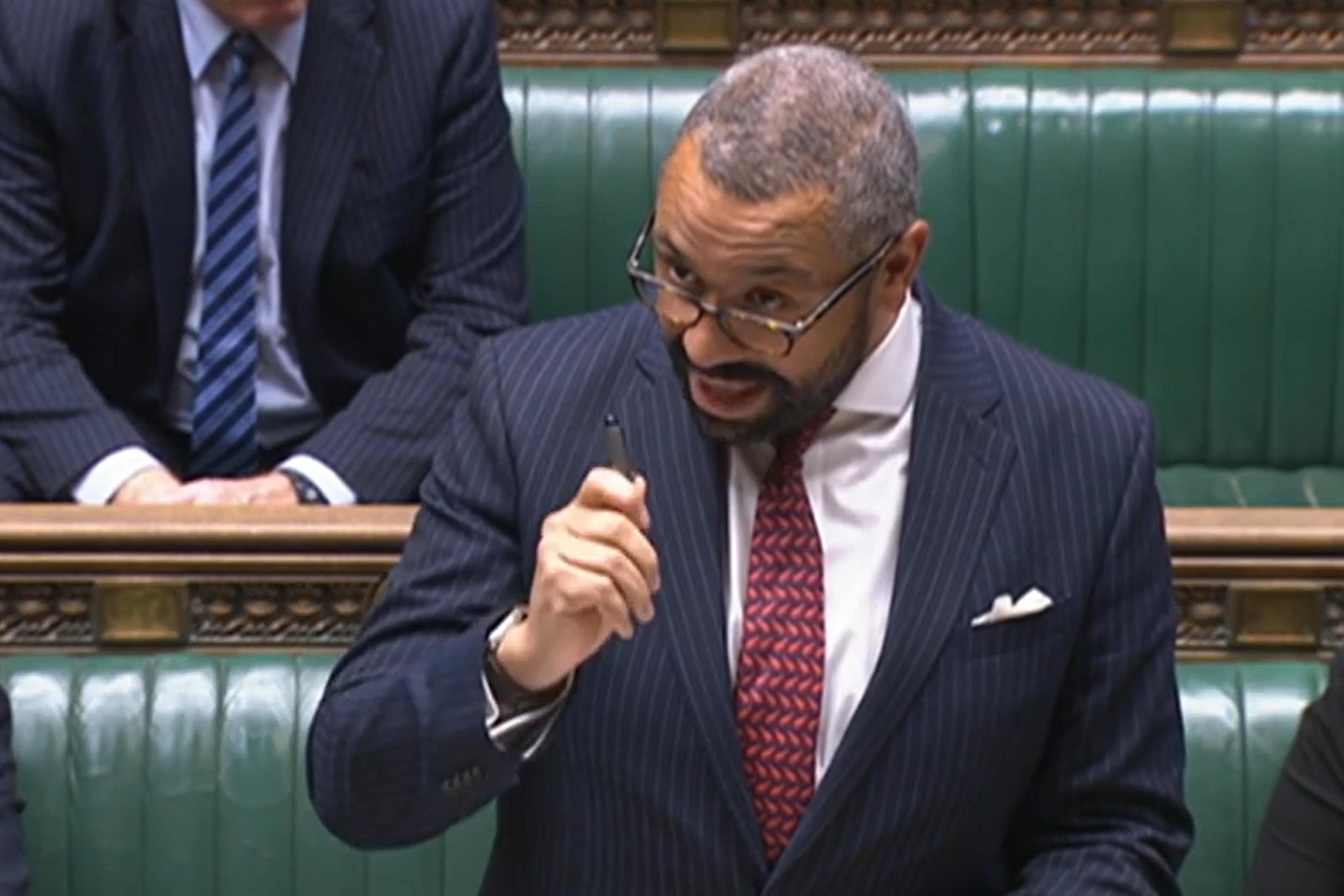‘Not necessary’ to quit human rights convention to tackle small boats – Cleverly
The Government is facing pressure from the right of the Conservative Party over the European agreement.

It is not “necessary” for the UK to leave the European Convention on Human Rights (ECHR) following the Supreme Court judgment which ruled the Rwanda plan unlawful, James Cleverly has said.
The Home Secretary said ministers would not seek to change UK human rights law “simply to manufacture an unnecessary row for political gain”, amid the fallout from the judgment.
The Government is facing pressure from the right of the Conservative Party to introduce a new law that would override parts of the European agreement, or see the UK leave it entirely.
The Prime Minister has said that if our domestic legal framework frustrates our plans, he is prepared to change our laws. But I will inform the House, we are not going to put forward proposals simply to manufacture an unnecessary row for political gain
Lawyers for refugees placed on flights intended for Rwanda have previously cited human rights laws underpinned by the convention in court, leading to planes remaining grounded as a result of their challenges.
In his first appearance in the Commons, new Home Secretary Mr Cleverly said: “The Prime Minister has said that if our domestic legal framework frustrates our plans, he is prepared to change our laws.
“But I will inform the House, we are not going to put forward proposals simply to manufacture an unnecessary row for political gain.”
Rishi Sunak had earlier told the Commons that he was “prepared to revisit our domestic legal frameworks” if necessary to ensure his plan to stop small boat crossings worked.
Backbenchers on the Tory right are calling for an overhaul of the UK’s rights and treaties framework in light of the judgment, with deputy chairman Lee Anderson meanwhile claiming ministers should “ignore the law” and start sending asylum seekers to the east African nation.
Jonathan Gullis, a member of the New Conservatives group, confronted the Home Secretary about whether he was “willing to disapply international treaties and conventions such as the ECHR and the Refugee Convention in order to take back control of our borders, yes or no?”
Mr Cleverly responded: “I don’t believe those things are necessary.”
Conservative former prime minister Theresa May pointed out that the “fundamental judgment” made by the Supreme Court on the Rwanda policy was made “regardless of the ECHR”.
Speaking in the Commons, she said: “Can I ask him to confirm that the judgment that the Supreme Court made today was not contingent on the ECHR, indeed the fundamental judgment was made regardless of the ECHR?”
The Home Secretary said it was an “incredibly important point”, adding: “The judgment draws our attention to work that we can do working with our partners in Rwanda to address the court’s concerns about people being returned to unsafe countries.
“That is where we will address our focus because that will be the pathway to ensuring that Rwanda stays a key element of our basket of responses to illegal migration.”
Meanwhile, shadow home secretary Yvette Cooper questioned what the impact of the court judgment would be on the Illegal Migration Act.
The Act was introduced earlier this year, and imposes a legal duty to remove people making an unauthorised entry to the UK, barring them from claiming asylum in the country.
Ms Cooper asked: “What does this mean for the Prime Minister’s flagship legislation? Because he boasted about passing it only yesterday, but the Government hasn’t actually commenced the central clauses for law, because without Rwanda – and frankly even with Rwanda – the policy doesn’t work and will just lead to an endless, ever-increasing permanent backlog.
“Can he confirm now he won’t, in fact, be implementing the central tenets of that law this year? And can he confirm that this means the Prime Minister’s pledges to introduce the new law to stop the boats and to also end hotel use will all be broken this year?”
The Home Secretary did not directly answer the question, but had earlier insisted the Rwanda scheme was “one tool in our toolbox” to tackle small boats crossings, listing closer work with France and the returns agreement with Albania among other efforts.
Bookmark popover
Removed from bookmarks